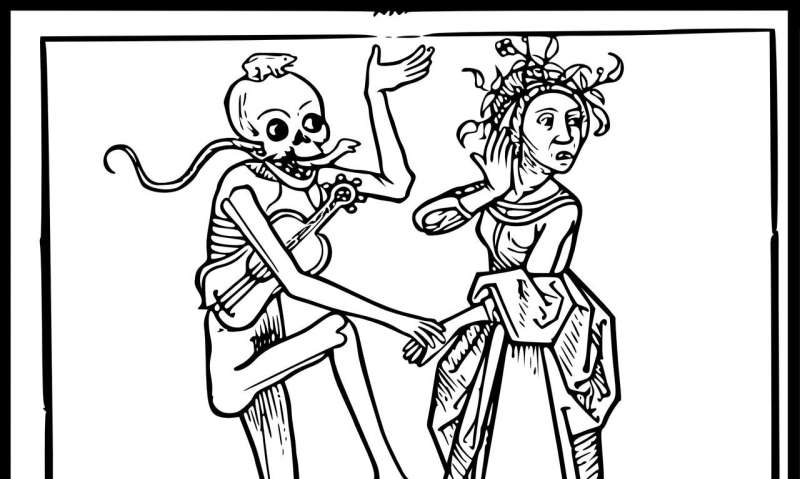November 6, 2019 report
Researchers find a connection between pathogen history and degree of moral vitalism

An international team of researchers has found evidence that suggests the degree of moral vitalism—believing in forces of good and evil—in a given society may be related to its pathogen history. In their paper published in Proceedings of the Royal Society B, the group describes their study of data from two prior research efforts and from their own survey, and what they learned from it.
Historians have known for some time that people from earlier times had a tendency to blame the devil or evil spirits for their misfortunes. There is also ample evidence of people blaming diseases on such spirits as well—the reaction by many to the Black Death in Europe is a prime example. In this new effort, the researchers wondered if attributing disease to such spirits might confer an evolutionary advantage. To find out, they carried out three studies.
In the first two studies, the researchers looked at data from prior research efforts aimed at better understanding the role the evil eye and the devil have played in various cultures. To gain a better perspective on the data they obtained, they created models that compared the pathogen history of each with the degree of moral vitalism. They report that doing so revealed a pattern: societies that faced more diseases tended to exhibit higher moral vitalism. Noting that their findings did not really show whether one was really affecting the other, they carried out a study of their own.
The study carried out by the researchers involved sending surveys to college students from many countries across the world. The goal of the survey was to measure the degree of moral vitalism in individuals along with their healthcare histories. They report that in all they received completed surveys from 3,100 volunteers from 28 countries. In studying the data, the researchers found what they describe as a clear association in behavior patterns. Those students living in places where they were more likely to contract a serious disease tended to have a higher degree of moral vitalism—and they were more likely to engage in behaviors meant to protect themselves from such spirits.
The researchers conclude by suggesting that taken together, the data from the three studies suggests that there is a connection between pathogen history and level of moral vitalism. And they further suggest that it appears to confer an evolutionary advantage. Someone who believes the devil is responsible for making someone sick, for example, will likely take action to avoid being around that person, keeping them safe.
More information: Brock Bastian et al. Explaining illness with evil: pathogen prevalence fosters moral vitalism, Proceedings of the Royal Society B: Biological Sciences (2019). DOI: 10.1098/rspb.2019.1576
Journal information: Proceedings of the Royal Society B
© 2019 Science X Network

















